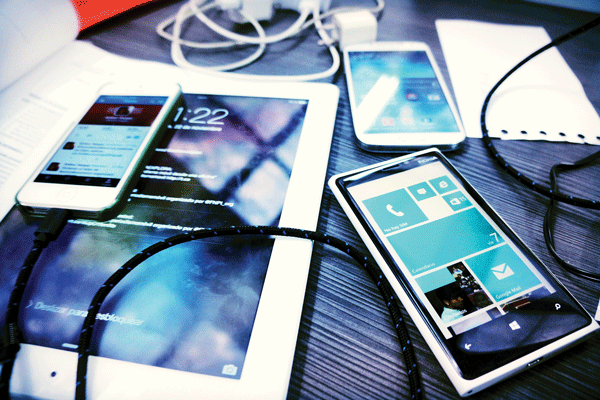
By Miriam Tose Majome ADVANCEMENT in technology and social evolution have changed all professions. Some professions and trades have even been obliterated altogether. One profession that will never die is journalism because there will always be need for news and information.
In this information-hungry age, journalism can only continue to grow and evolve because the appetite for news and information is insatiable. News and information create opportunities and demand for more news and information in many different forms and angles.
One of the biggest changes is the growth of citizen journalism. Ordinary people without any training, qualifications or talent are becoming journalists more than at any other time in history. Now anyone with a computer or a phone with a camera and an internet connection can be a journalist albeit not a professional one.
Modern-day citizen journalism has been enabled by the development of various internet platforms such as social networking and media sharing websites. There is also wide-spread availability of mobile phone technology, especially smartphones. Other enabling technological tools include desktop publishing software, digital cameras, video camcorders and blogging software. These are in addition to social media sites that make and share news and information instantly.
Citizen journalism is not an entirely new phenomenon. Ordinary citizens were the first creators and disseminators of news long before journalism became a formal profession. Citizen journalists were there long before humans could read and write, long before the printing press, photography and communication gadgets. Human beings are social creatures and for the 250 000 years of their existence have been creating and sharing news and information both important and trivial.
Citizen journalism is known by other names such as collaborative media, participatory journalism, democratic journalism, guerrilla journalism or street journalism. Members of the public actively involve themselves in collecting, reporting, analysing, and disseminating news and information.
Citizen journalism is an alternative source of information distinct from mainstream media. Just like mainstream journalism, it has its positive and negative sides because it is driven and influenced by different motives which can be both good and bad. Its most positive aspect is that it fills the gaps left by traditional news sources and lends balance to biased views and propaganda churned out by established news outlets.
It is mostly citizen journalists who are providing alternative viewpoints regarding the Russia/Ukraine conflict totally different from the propaganda churned out by main news sources from both sides of the conflict. The widespread availability of more efficient communication technology enables citizens to report breaking news more quickly than traditional media houses. Citizens are there faster when the news happens and are often co-opted by established news houses as sources and accessories.
- Chamisa under fire over US$120K donation
- Mavhunga puts DeMbare into Chibuku quarterfinals
- Pension funds bet on Cabora Bassa oilfields
- Councils defy govt fire tender directive
Keep Reading
The negative side of citizen journalism is lack of professional ethics because of either ignorance and lack of training or lack of regulation. All countries regulate their media through laws and policies. However, the internet where most citizen journalists practise is impossible to regulate.
Different countries have different models of media regulation ranging from State control to self-regulation or a mixture of both State and self-regulation. Professional journalists submit themselves to regulation because of the benefits of association and the recognition and respect accorded to them as professionals.
The Zimbabwe Media Commission oversees the regulation of the media industry through legislation. In the UK, both public and private broadcasters are regulated by Ofcom (Office of Communications set up under the Communications Act 2003.
Journalists and other media practitioners typically form professional associations in order to protect their rights and uphold the standards of the profession. Citizen journalists do not do this and set their own standards. Journalists, who belong to professional associations, are subject to regulation and are expected to respect and adhere to the ethical guidelines of the profession. This is not always the case because professional journalists are often at the front of breaching journalistic principles and abusing their positions.
There is usually recourse for people when defamed or harmed in some way by professional journalists, but the same cannot be said for citizen journalists. Unless the offending citizen journalists can be positively traced, there is little that injured parties can do to get redress and compensation because of the anonymous character of the internet
Citizen journalists are not obliged to adhere to journalistic ethics like professional journalists do. Professional journalists have an obligation to consider legal and ethical issues before writing and broadcasting anything. There are laws to restrict and penalise journalists who report false or damaging information. Some of the ethics of journalists are — adhering to codes of conduct which set good, ethical practice, giving people alleged to have done something the right of reply, and respecting privacy and protecting vulnerable people like children.
Professional journalists are expected to know and follow the rules of using secret recording equipment. Professional journalistic codes bar secret recording unless it is absolutely necessary. Permission from the party being recorded should be sought in most cases. Secret recording can only be done in the rarest of cases if there is no other way to get the story and only if it is in the public interest.
Covert or secret methods can be used to expose wrongdoing, especially that of leaders and abusers. Journalists are allowed to breach ethical and professional guidelines only in cases of overwhelming public interest like when exposing crime or serious impropriety, protecting public health and safety.
When information and news become tradable commodities and there is money or advantages to gain from portraying certain angles, the conduct of some professional journalists makes it difficult to distinguish them from citizen journalists.
Miriam Tose Majome is a lawyer at Veritas and is also a commissioner at the Zimbabwe Media Commission. She writes in her personal capacity.











